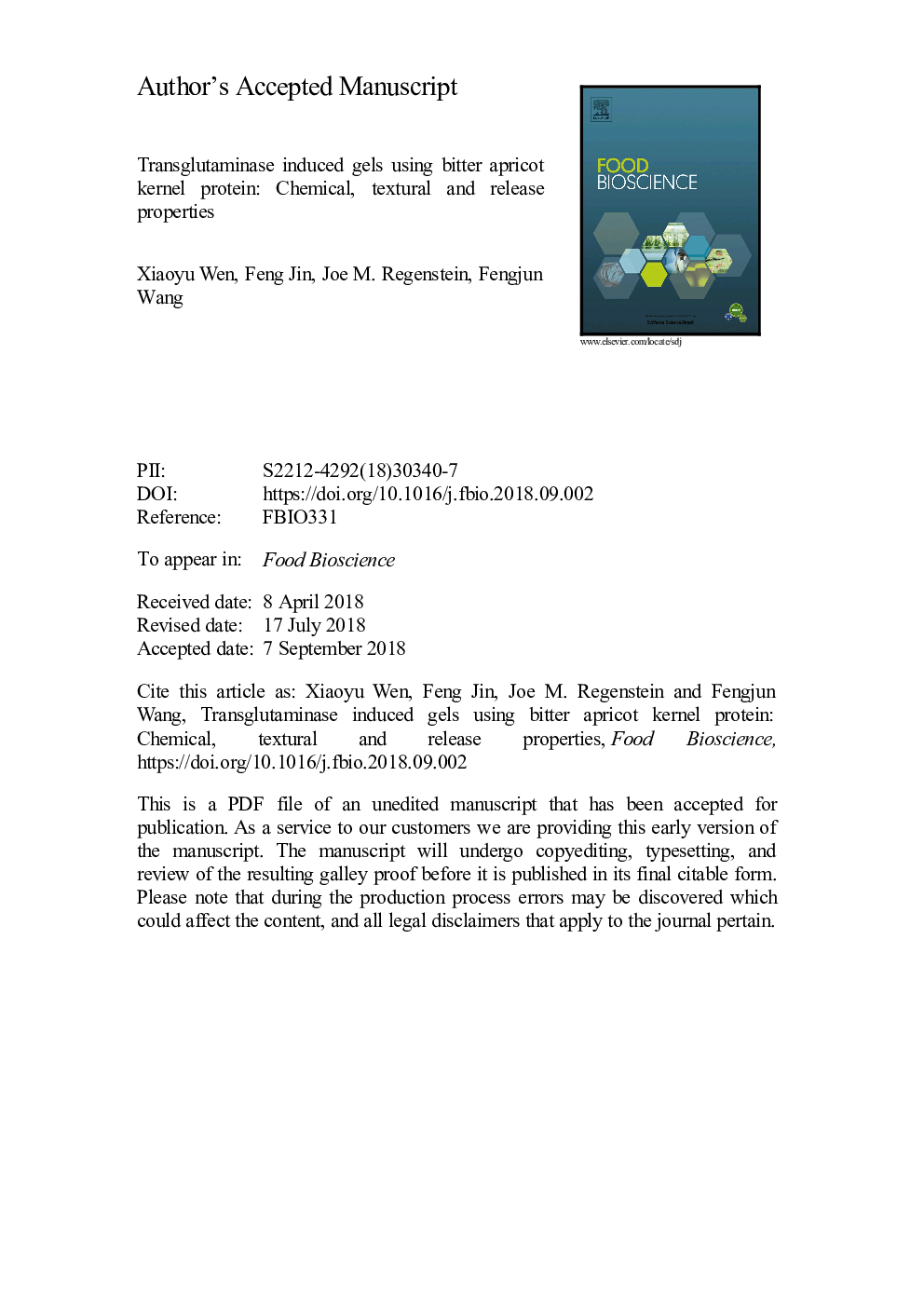| Article ID | Journal | Published Year | Pages | File Type |
|---|---|---|---|---|
| 10148763 | Food Bioscience | 2018 | 39 Pages |
Abstract
Plant protein gels have a good biocompatibility and biodegradability to provide a non-reactive environment and control the release of sensitive or bioactive compounds. In this study, the effects of microbial transglutaminase (MTGase) catalyzed crosslinking on chemical interactions, textural properties and controlled release of gels made using bitter apricot kernel protein concentrate (APC) were investigated. As the MTGase concentration increased, the free amino and free sulfhydryl groups decreased, while the degree of crosslinking, disulfide bonding and surface hydrophobicity increased. A compact and homogenous network structure was observed using SEM. Textural profile analysis showed that MTGase induced crosslinking increased gel hardness, springiness and cohesiveness. In addition, in vitro controlled release studies showed that MTGase induced APC gels were able to resist acidic conditions and pepsin digestion, protected the riboflavin against simulated gastric fluid and allowed gradual release in simulated intestinal fluid. These APC gels may be suitable for delivering sensitive compounds into functional foods, as well as dietary supplements and pharmaceutical products.
Keywords
Related Topics
Physical Sciences and Engineering
Chemical Engineering
Bioengineering
Authors
Xiaoyu Wen, Feng Jin, Joe M. Regenstein, Fengjun Wang,
